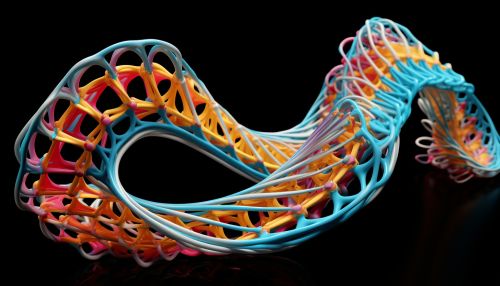AlphaFold
Introduction
AlphaFold is a revolutionary computational tool developed by DeepMind Technologies, a subsidiary of Alphabet Inc., that predicts protein structure based on its amino acid sequence. The tool uses artificial intelligence, specifically deep learning algorithms, to predict the three-dimensional structure of proteins, a task that has been a significant challenge in the field of molecular biology for decades.


Background
The structure of a protein, which is determined by the sequence of amino acids that make it up, is critical to its function. Understanding the structure of proteins can provide insights into how they function and interact with other molecules, and can aid in the development of drugs and therapies. However, determining protein structure experimentally, through methods such as X-ray crystallography or nuclear magnetic resonance spectroscopy, is a time-consuming and often difficult process.
In 1972, Christian Anfinsen was awarded the Nobel Prize in Chemistry for his work demonstrating that the three-dimensional structure of a protein is determined by its amino acid sequence. This concept, known as Anfinsen's dogma, laid the groundwork for the field of protein structure prediction. However, despite the simplicity of the concept, predicting the three-dimensional structure of a protein from its amino acid sequence, a problem known as the protein folding problem, has proven to be a significant challenge.
Development of AlphaFold
In an attempt to tackle the protein folding problem, DeepMind Technologies developed AlphaFold. The first version of AlphaFold, AlphaFold1, was introduced in 2018 and won the 13th Critical Assessment of protein Structure Prediction (CASP) competition, a biennial event that benchmarks the most advanced protein structure prediction methods from around the world. AlphaFold1's performance was significantly better than that of other methods, but it was still not accurate enough for many practical applications.
In 2020, DeepMind introduced AlphaFold2, an improved version of the tool, which again won the CASP competition. This time, however, AlphaFold2's performance was comparable to that of experimental methods, a milestone in the field of protein structure prediction. The success of AlphaFold2 was hailed as a major breakthrough and was named the "Breakthrough of the Year" by the journal Science in 2020.
How AlphaFold Works
AlphaFold uses a type of artificial intelligence known as deep learning to predict protein structure. Deep learning is a subset of machine learning that uses artificial neural networks with multiple layers (hence the term "deep") to model and understand complex patterns.
In the case of AlphaFold, the tool uses a deep learning algorithm to predict the distances between pairs of amino acids and the angles between chemical bonds that connect those amino acids. This information is then used to generate a three-dimensional model of the protein.
AlphaFold's deep learning algorithm is trained on a large dataset of known protein structures. The algorithm learns to recognize patterns in the data and uses this knowledge to make predictions about the structures of new proteins.
Applications and Impact
The ability to accurately predict protein structure has wide-ranging implications for biology and medicine. For example, understanding the structure of a protein can provide insights into how it functions, how it interacts with other molecules, and how it might be affected by mutations. This information can be used to design drugs and therapies, to engineer enzymes for industrial applications, and to understand the molecular basis of diseases.
In addition, AlphaFold has the potential to significantly speed up the process of protein structure determination. Experimental methods for determining protein structure can take months or even years, whereas AlphaFold can predict a protein's structure in a matter of days.
Future Directions
While AlphaFold represents a significant advance in the field of protein structure prediction, there is still room for improvement. For example, while AlphaFold is very good at predicting the structure of individual proteins, it is less accurate when it comes to predicting the structures of protein complexes, i.e., groups of proteins that interact with each other. In addition, AlphaFold's predictions are not always perfect, and the tool can sometimes struggle with particularly complex proteins.
DeepMind is actively working on improving AlphaFold, and the company has made the tool's source code available to the scientific community, allowing other researchers to contribute to its development.
See Also
- Deep learning
- Protein structure
- Protein folding problem
- Critical Assessment of protein Structure Prediction
- Machine learning in bioinformatics
